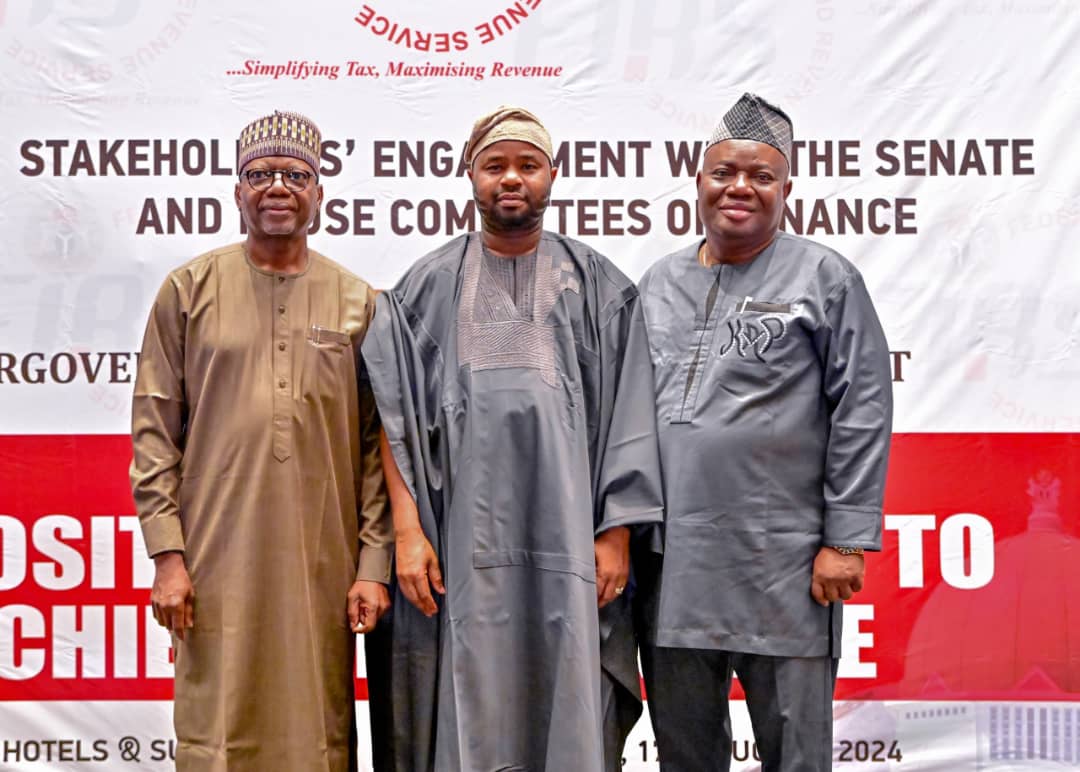
The National Assembly (NASS) has thrown its weight behind the Federal Inland Revenue Service (FIRS) regulation of the cryptocurrency industry, modernisation of outdated tax laws and the overhaul of revenue administration to drive revenue targets in the country for the current and future fiscal years.
This was disclosed during the weekend at a stakeholder engagement with the Senate and House Committee on Finance organised by the Intergovernmental Relations Department of the FIRS held in Lagos with the theme, ‘Repositioning The FIRS To Achieve Its Mandate.’
The Chairman, Senate Committee on Finance, Muhammad Sani Musa, said the collaboration between the FIRS and the National Assembly is important in addressing inefficiencies in the current revenue collection system, particularly the emerging sectors that are currently unregulated to drive the country’s revenue targets.
Musa emphasised the urgency of updating the legal framework to align with contemporary economic realities, noting that many of the tax laws have remained unchanged since before independence, making them ill-suited for today’s financial environment.
He highlighted that with appropriate legislative support, including the modification of archaic laws and the introduction of new regulations to govern emerging industries like cryptocurrency, Nigeria’s revenue collection capacity would be vastly improved.
The senator also emphasised the critical role FIRS plays in national revenue collection and expressed strong support for the agency’s efforts to streamline and enhance tax collection processes to achieve its N19.4 trillion goal set for the current fiscal year.
Musa further endorsed the National Single Window programme as a solution to these challenges, adding that it will significantly improve the effectiveness of revenue collection across the country.
He assured that the Senate would work swiftly to address these legislative gaps once it resumes from recess, signaling that new laws could be enacted in the near future.
In a similar vein, the Chairman of the House of Representatives Committee on Finance, James Faleke, who was represented by one of the committee members, Kalejaiye Paul, pointed out the need for Nigeria to harness the revenue potential of sectors like cryptocurrency, which has become one of the largest avenues for wealth creation globally but remains largely unregulated in Nigeria.
Faleke acknowledged the challenges faced by the FIRS in tax collection, especially in a context where many citizens are reluctant to contribute to national revenue.
He underscored the importance of a unified approach to tax collection and the potential benefits of the National Single Window programme in enhancing the efficiency of revenue generation for the nation.
Despite these challenges, Faleke commended FIRS for its professionalism and commitment to its duties and assured that the House of Representatives would continue to cooperate and collaborate with the agency in its efforts to move Nigeria forward.
Speaking earlier, the Executive Chairman, FIRS, Dr. Zacch Adedeji, solicited the support of the NASS to modernise outdated laws to reflect contemporary economic realities and the regulation of cryptocurrency industry to achieve the N19.4 trillion revenue target for the current fiscal year.
Adedeji said an Executive Bill, which seeks to strengthen the service’s capacity to maximise revenue collection is being put together for transmission to the National Assembly.
The FIRS chairman said the aim of the bill is to, among others, simplify existing tax framework, harmonise collection of revenue and replace obsolete tax laws such as the Stamp Duty Act of 1939 in line with the current economic realities.
“Just to put you on notice, by September 2024, we are proposing a law that would overhaul the whole process of revenue administration in Nigeria, harmonising, recoding and simplifying the tax laws that we have. As we stand today, there is no law in Nigeria that regulates cryptocurrency. This is something we are addressing as part of our broader reforms,” Adedeji stated.
Adedeji expressed confidence in achieving the N19.4 trillion target, attributing this to recent legislative support and the implementation of innovative tax collection strategies.






